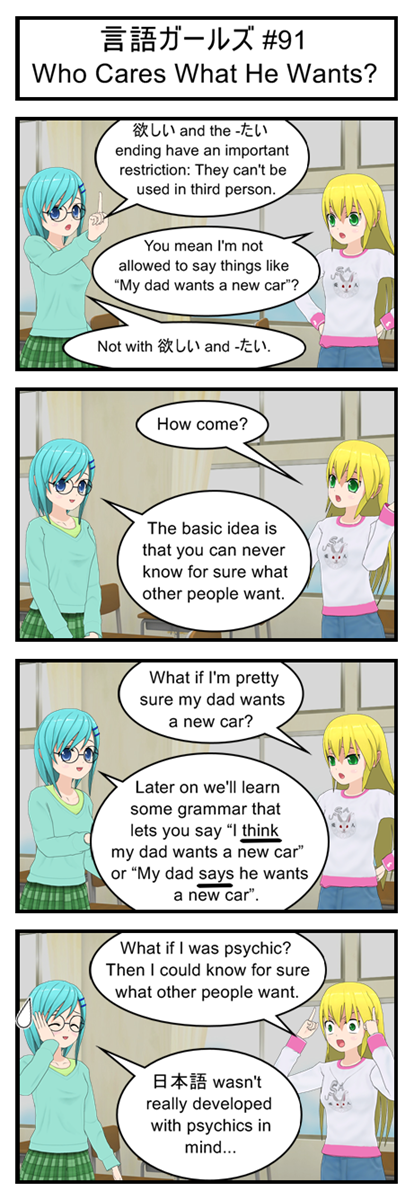
So “hoshii” and “-tai” can’t be used in third person. And it’s pretty obvious they can be used in first person (since most of our examples were done that way). But what might be less obvious is that they can be used in second person questions. If you want to ask someone “What do you want?” or “Do you want to do X?” you can use “hoshii” and “-tai”.
You may not really know what the other person wants, but you can ask them.
Of course, even if someone tells you what they want there is no way to be sure they were telling the truth so you still can’t use “hoshii” and “-tai” to talk about their answer.
Transcript
言語ガールズ #91
Who Cares What He Wants?
Blue: 欲しい and the –たい ending have an important restriction: They can’t be used in third person.
Yellow: You mean I’m not allowed to say things like “My dad wants a new car”?
Blue: Not with 欲しい and –たい.
Yellow: How come?
Blue: The basic idea is that you can never know for sure what other people want.
Yellow: What if I’m pretty sure my dad wants a new car?
Blue: Later on we’ll learn some grammar that lets you say “I think my dad wants a new car” or “My dad says he wants a new car”.
Yellow: What if I was psychic? Then I could know for sure what other people want.
Blue: 日本語 wasn’t really developed with psychics in mind.